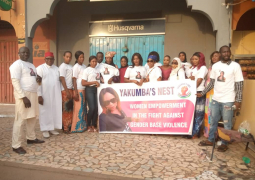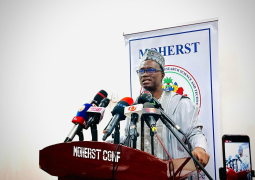
February 6 is annually celebrated as International Day of Zero Tolerance for Female Genital Mutilation, a day designated by the United Nations to amplify calls and direct efforts on the elimination of all forms of practice against women including Female Genital Mutilation (FGM).
The theme for this year’s celebration is: ‘Partnership with Men and Boys to Transform Social and Gender Norms to End FGM.’
FGM comprises procedures that involve partial or total removal of the external female genitalia, or other injury to the female genital organs.
World Health Organisation (WHO) has revealed that more than 200 million girls and women alive today have undergone the practice in 30 countries in Africa, the Middle East and Asia where FGM is practised. The practice, it added, is mostly carried out on young girls between infancy and aged, 15.
“Treatment of the health complications of FGM is estimated to cost health systems US$ 1.4 billion per year, a number expected to rise unless urgent action is taken towards its abandonment.”
In a statement signed by Emmanuel Daniel Joof, chairperson of the National Human Rights Commission (NHRC), the right commission expressed delight to join the rest of the world to commemorate the Day.
“According to the United Nations, a girl is one-third less likely to undergo FGM today than 30 years ago. While this global statistic is encouraging, it is not even across countries. FGM remains unevenly practiced geographically, with girls in some parts of the world more vulnerable to fall victims of this harmful traditional practice than others.”
The statement added that despite significant progress registered in the formulation of legal frameworks and policies, girls in The Gambia are still vulnerable to this ugly practice mainly due to existing social and gender norms.
The Commission, thus, stated that it welcomes the theme of this year’s commemoration, which highlights the need for even men and boys to join the promotion and protection of the rights and freedoms of women and girls and to refrain from any actions that encourage and perpetuate FGM and be at the fore in the advocacy to end FGM.
“As women's rights are human rights, the Commission calls on all fathers, brothers, uncles, including political, social, economic and religious gatekeepers, to become actively involved in the advocacy for the elimination of FGM in The Gambia and to be a vigilant keeper of their sisters and daughters,” the statement added.
Similarly, The Network Against Gender-based Violence (NGBV) stated that it continues to advocate against the deeply rooted cultural practice (FGM) that promotes gender inequality and violence against women and girls.
“To this effect, the network seizes this opportunity to remind the Government of The Gambia to effectively enforce the anti-FGM laws to protect our women and girls from the sexual and reproductive effects of FGM,” it stated on its social media handles.”
Human Rights Watch, one of the top global rights bodies, equally shared that FGM violates women's and children's human rights, including their rights to health, to be free from violence, and to life and physical integrity. It therefore calls on governments to eradicate this ‘inhumane practice’.




